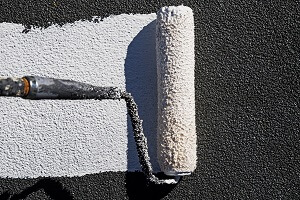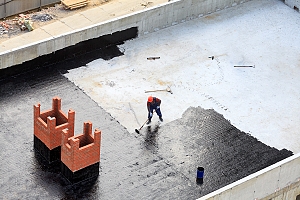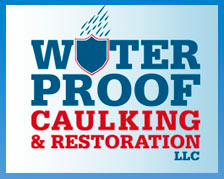 The climate changes each year, but over time, scientists have noted trends that are expected to continue into the foreseeable future. In New Jersey, meteorologists are anticipating a rise in extreme weather, and the state is already at the mercy of year-round climate challenges thanks to its latitudinal position in the northern hemisphere.
The climate changes each year, but over time, scientists have noted trends that are expected to continue into the foreseeable future. In New Jersey, meteorologists are anticipating a rise in extreme weather, and the state is already at the mercy of year-round climate challenges thanks to its latitudinal position in the northern hemisphere.
This might seem like the purview of weather scientists and hobbyists, but New Jersey’s extreme weather matters to commercial building owners as well, no matter which industry they operate in. Now more than ever, investing in waterproofing is a wise choice that can extend the lifespan of a structure and save money in the long run.
Here is an overview of why NJ commercial waterproofing matters for buildings, including an explanation of how New Jersey’s weather continues to change and how waterproofing can rise to meet this increasing challenge.
How New Jersey’s Extreme Weather Is Changing
Since 1990, the Garden State has faced hotter temperatures than ever; in fact, 9 of the 10 hottest days recorded in the state have occurred in this time period. As temperatures rise, storms become more powerful because the heat increases water evaporation and sweeps more precipitation up into the atmosphere.
More than 40 extreme weather events over the last few decades have cost commercial facilities in the state more than $1 billion in damages to their structures, and annual precipitation is only slated to increase further.
New Jersey sees a wide array of weather patterns, and everything from fires and tornados to heavy snow is possible. However, it is the snow and especially the rain that is concerning for many commercial buildings.
As storms increase in both intensity and duration, they create more precipitation than ever—8% more than just 10 years ago. All of this water needs to go somewhere, either from rain or snowmelt, and without proper waterproofing, a lot of it can end up inside the walls of commercial buildings.
Why Extreme Weather Matters for Commercial Buildings
The extreme weather faced by buildings in New Jersey predisposes them to damage that is difficult to see but costly to repair. At the least serious—but still very hazardous—level, water intrusion may contribute to the growth of mold.
Black mold is dangerous to human health, and mold issues often go unnoticed until people start to get sick or the mold has spread to damage the majority of internal structures.
Commercial buildings in the path of New Jersey’s extreme weather also face increased risk of flooding in low-lying areas such as basements. Even if your basement or warehouse is not visibly waterlogged, moisture may be seeping into the wooden framing of the structure or pushing apart bricks and mortar.
This type of damage starts slowly at first, and owners may not notice at all until the structural integrity of the building is compromised and it is no longer safe to use. This can slow or even entirely halt production and workflow in the building, threatening the financial longevity of the commercial operation.
Add to that the cost of remediating the issue—which could include rebuilding entire sections of the building—and suddenly, investing in preventive strategies makes much more sense than fixing a water problem later.
How Waterproofing Can Help
Commercial waterproofing is a comprehensive process that keeps water from entering the building. It can be done while construction is still being conducted and the foundation is accessible, but even buildings that are already assembled can be waterproofed inside, outside, or both.
One of the most common ways to approach commercial building waterproofing is with a membrane applied to the exterior of the structure. This membrane prevents moisture from entering from the outside, but it is permeable enough to permit humidity from inside the building to escape.
No matter whether heavy rainfall pools at the base of a structure or deep snow bluffs melt against the side of a building, the water will not be able to penetrate a waterproof membrane.
 One of the biggest risks for commercial buildings in New Jersey is the freeze-thaw process, during which water enters cracks in bricks and mortar, expands when it freezes, and then thaws, resulting in an even larger crack.
One of the biggest risks for commercial buildings in New Jersey is the freeze-thaw process, during which water enters cracks in bricks and mortar, expands when it freezes, and then thaws, resulting in an even larger crack.
Waterproofing halts this process so that cracks do not worsen into issues that can threaten the structural safety of a building. Alongside regular exterior maintenance, waterproofing is the simplest way to shield your structure from the increasing risk of severe weather in New Jersey.
Get NJ Commercial Waterproofing Done Right the First Time
Whether you are in the middle of a new construction or manage an already existing building, it is not too late to invest in comprehensive waterproofing. Extreme weather will continue to increase in frequency, and New Jersey commercial buildings must prepare.
The experts at Waterproof Caulking & Restoration have years of experience applying complete waterproofing solutions to buildings of all sizes and types. Contact us to discuss a waterproofing project or schedule an appointment to begin the process.
